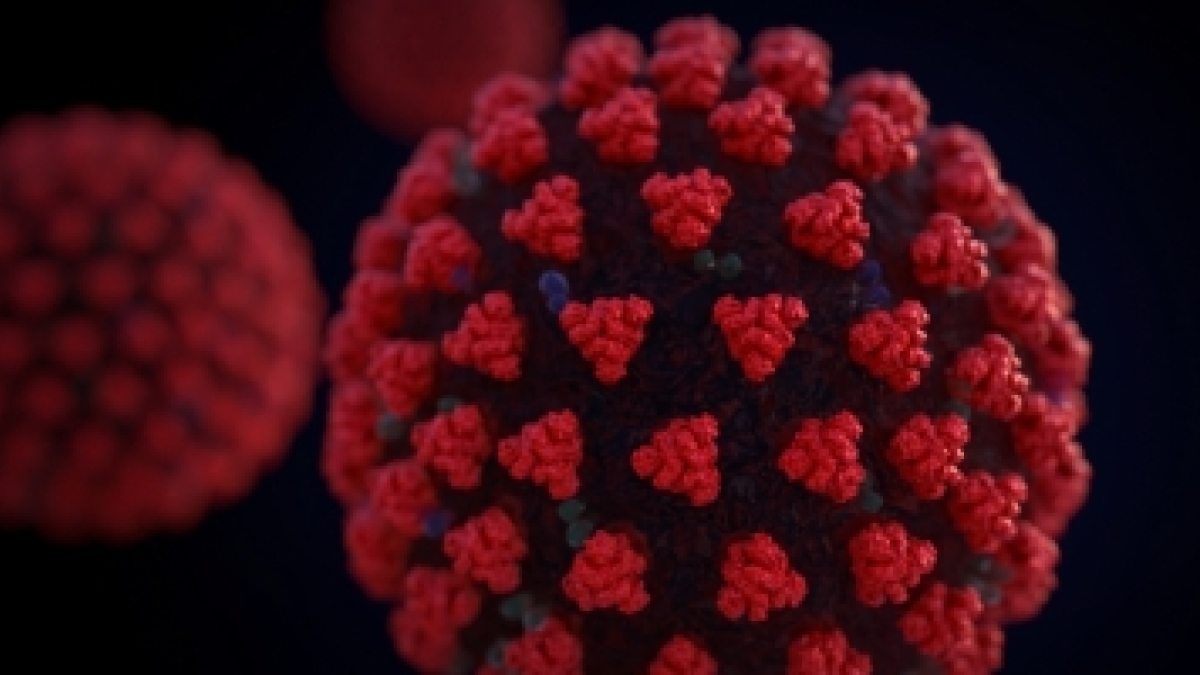COVID-19 contact-tracing team of ASU students closes nearly 15K cases in 6 months

Illustration of coronavirus.
A Maricopa County COVID-19 case investigative team consisting of Arizona State University students, assisted by faculty and staff from the ASU School of Social Work in Tucson, has closed nearly 15,000 cases since June through extensive interviews and contact tracing.
Effective contact tracing involves identifying infected individuals and anyone with whom they’ve been in contact, then working with those people to halt further spread of the disease, according to the Centers for Disease Control and Prevention.
School of Social Work faculty and staff have partnered with ASU’s Student Outbreak Response Team to support Maricopa County’s COVID-19 case investigation and contact-tracing efforts as the ASU COVID-19 Case Investigation Unit.
“If an individual tests positive for COVID-19, the information is shared from the testing site to the county and state, so case investigations can begin,” said Laura Meyer, the unit’s program manager of staffing and team development. “Our team of volunteers and supervisor staff are working on behalf of the county to call all these positive cases in Maricopa to complete these case investigation interviews.”
Meyer said the questions the unit asks are fairly straightforward. They include inquiries about demographics, to figure out where the virus is spreading and who will be affected; symptoms and avenues of exposure; and whether or not the patient is currently working.
They also ask infected individuals to identify people with whom they have been in contact, and if they’ve been to any events, said Mick Salik, a graduate research assistant with the case investigation unit. Salik is a second-year grad student in the Master of Social Work degree program, concentrating in policy and administration.
“Everything is confidential. We don’t share outside of the case investigation unit,” Salik said. “That’s just to protect the people on the other side.”
Turnaround times depend on the testing site and when results are handed to the county, but Meyer said the goal is to close out a case within two days.
As of Nov. 6, the case investigation unit has 14 supervisors and 183 active volunteers. Most of the volunteers have an affiliation with ASU or are from Arizona, though many come from across the country, according to Meyer. Many of the case investigators are actually ASU students who have taken this opportunity to get clinical or client exposure.
Meyer added that all volunteers go through a robust, 15-hour virtual training program and work 100% remotely. For example, Meyer is in Houston and said the other supervisors and volunteers are spread across the country on both coasts.
The only exception is a field team in Guadalupe, Arizona, an area which has been particularly hard hit by COVID-19, according to Meyer. She said this team is doing work very similar to the case investigations. First, team members reach the patient by phone to limit exposure. They also conduct a needs-based assessment and provide specific resources to help those with any additional needs. Meyer said the field team also passes out supplies like masks and hand sanitizers in the community.
Meyer received her Master of Social Work degree in Tucson in May 2020 with a concentration in planning, administration and community development. In her own research, Meyer said she studies “how education tools can help doctors to communicate empathetically with their patients to improve connection and build rapport.” As the program manager, Meyer’s responsibilities include overseeing staff and volunteer training, including teaching volunteers how to show empathy to patients over the phone, in the same vein as her research.
Case investigations and contact tracing are nothing new. Meyer said they are practices that have been “established for a long time” and to her knowledge, case investigations and contact tracing played an integral role in stopping the spread of Ebola.
She says that knowing about contact tracing and participating in it are an essential part of stopping the spread of COVID-19.
The School of Social Work is a part of Watts College of Public Service and Community Solutions.
Written by Susan Wong of ASU Watts College of Public Service and Community Solutions marketing communications.
More Science and technology

ASU professor breeds new tomato variety, the 'Desert Dew'
In an era defined by climate volatility and resource scarcity, researchers are developing crops that can survive — and thrive —…

Science meets play: ASU researcher makes developmental science hands-on for families
On a Friday morning at the Edna Vihel Arts Center in Tempe, toddlers dip paint brushes into bright colors, decorating paper…

ASU water polo player defends the goal — and our data
Marie Rudasics is the last line of defense.Six players advance across the pool with a single objective in mind: making sure that…

